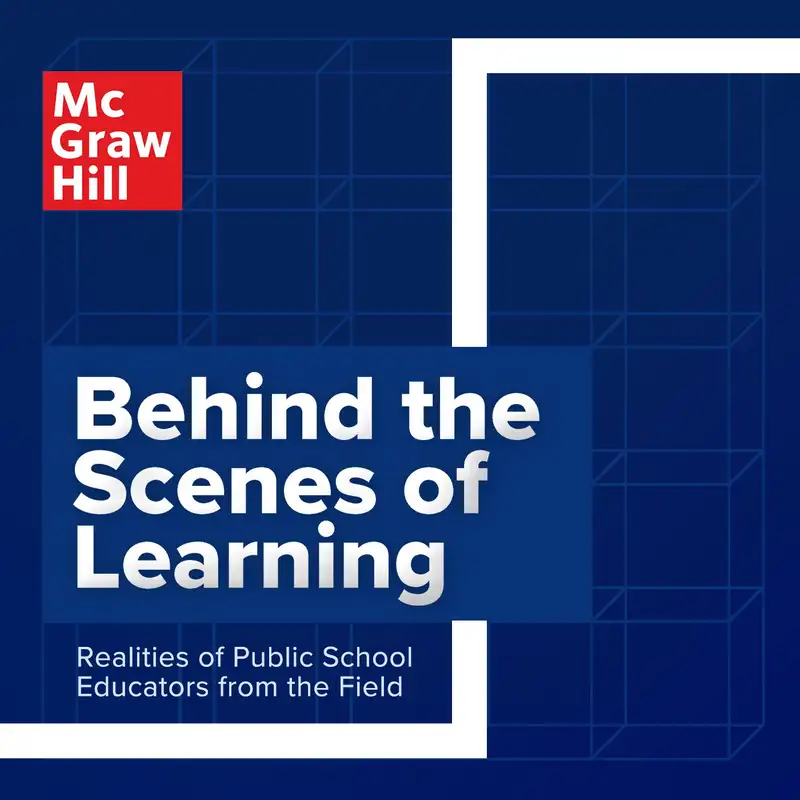What does it actually feel like to be a teacher today? Not just what the headlines say, not what the policies outline, but what it feels like every day when a teacher unlocks their classroom door and prepares to teach 20 to 30 students alone. This podcast, Behind the Scenes of Learning, realities of public school educators from the field, shares what we're hearing in real time from k through eight educators across the country. These are not just stories, they're signals. Signals about what's working, what's breaking down, and where real opportunities for change exist.
Elle Sarkisian:In our fieldwork this school year, one theme kept resurfacing, teacher isolation, which is the first topic we'll explore on episode one of this podcast. Teachers told us about the overwhelming demands of the job and the absence of meaningful support. They talked about curriculum pressures and new requirements, but no time to plan. About collaboration meetings that are overrun by admin updates, leaving no space to actually connect. They described using Google Chat during class just to get peer feedback because there's no time carved out to collaborate.
Elle Sarkisian:We also heard about parent partnerships that feel fractured, a lack of accountability and support when it comes to behavior.
Speaker 2:Johnny just punched, you know, Mike in the face today. Here's what we did at school. Please have a conversation about your son. Either radio silence or thanks for letting me know. You know, like, well, it needs to be a partnership.
Speaker 2:A hundred and eighty days with your kid. And in fourth grade, I'm sure this is not the first time we've heard about it. Or, you know, a lot of times too, I'm like, I'm a parent too. So if there's something that's sitting on the playground or if there's something that I'm not aware of, like, please please shed some insight so I can help keep an eye on it. So there's zero communication, for behavior.
Elle Sarkisian:And from every angle, we heard the impact of admin turnover, inconsistent follow-up, and policies that feel like surveillance rather than support. Teachers shared how efforts like MTSS and SEL look great on paper but feel hollow in the day to day reality of their classrooms.
Speaker 3:I think that we are doing I mean, we are being asked four to 500 questions a day. We are getting 20 emails a day. We are dealing with I mean, for example, I had an escalated parent that would come up every single day up to my classroom in the morning and kind of, like, put me on my ear right before I start my day. It's a lot. We're dealing with the community and the dynamics of, you know, the student that learns by sitting up on top of the desk and then an admin like, not my principal, but an administrator coming in and scoffing at that and being like, no.
Speaker 3:He was participating. Like, that was money right there. You know? Like, you don't get it. Right?
Speaker 3:So it's just a really dynamic job that I don't think anybody would understand until they, like, did it.
Elle Sarkisian:There's also the toll of being the only adult in the room, managing emotional escalations, language barriers, academic gaps, and trauma responses with no backup. One teacher told us they spend more time deescalating than teaching.
Speaker 4:Behaviors are hard too. You know? Like, you have kids that, being in class, that's hard for them. And you have kids that you don't know what happened at their house, the evening before, and you don't know what the morning was like. And they show up at your room, and you've gotta be there and be available for them.
Elle Sarkisian:And even when support is offered, many describe it as a one time PD with little relevance to real classroom needs. We also heard that collaboration isn't built by systems. It's built in hallway moments and shared texts.
Speaker 5:So we have, like, that time once a week for forty minutes. But a lot of times, it's filled with other things, like the MLL teacher coming in and, like, asking how she can support or talking about our student growth goals with our principal or, like, having our MTSS meetings, which are, like, midpoint meetings with our ITCL, like, things like that. So, like, we never really get time just us to, like, plan and collaborate.
Elle Sarkisian:And we heard how the assessment and grading culture and top down pressure isolate teachers even further.
Speaker 6:We've been presented a lot of research material that supports the 50%. I don't even know what it's called, grading scale. Yeah. And as much as I've read through all that stuff, it still doesn't make a lot of sense to me. Mhmm.
Speaker 6:So I guess I I would like to know more about it and why why it's considered more of an effective scale than the traditional zero to a 100 scale.
Elle Sarkisian:So we're asking, what would it look like to center connection, not just compliance, to create systems where teachers feel trusted, supported, and not so alone. In our first episode, we'll explore what isolation really feels like and what teachers say would make the biggest difference. This podcast is here to share real stories from the field as reminders of what teachers are experiencing every day in their classrooms and what it takes to truly stand beside them and codesign meaningful change for the future of learning. We hope you enjoy listening to this podcast, find time to reflect, and are able to carry these stories forward in your work. I'm Elle Sarkisian, and this is Behind the Scenes of Learning, realities of public school educators from the field.
Elle Sarkisian:We invite you to tune in to episode one, Doing It Alone, available now whenever you're ready to listen.
